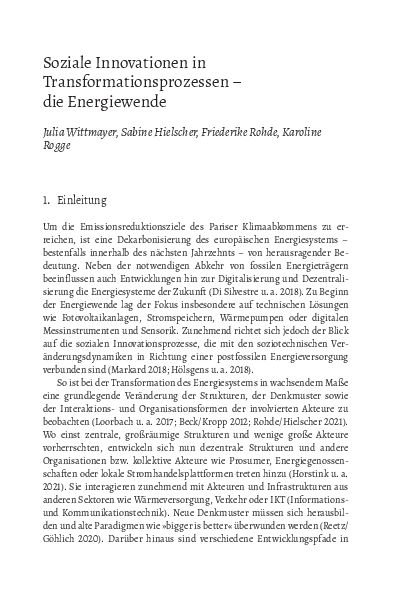Social innovation in transformation processes – the energy transition
To achieve the emission reduction targets of the Paris Climate Agreement, European energy systems need to be decarbonised - at best within the next decade. In addition to the necessary shift away from fossil fuels, developments towards digitalisation and decentralisation are also influencing the energy systems of the future. Energy transitions are mainly focused on technical solutions such as photovoltaic systems, electricity storage, heat pumps or digital measuring instruments and sensor technology.
Increasingly, however, attention has turn to the social innovation processes associated with the socio-technical change dynamics towards a post-fossil energy supply. In this book chapter, the authors develop an understanding of social innovations in energy transitions that draws attention to the transformative potentials of socio-technical innovation processes. They want to show how social innovations can be conceptualised to analyse the diverse forms of social innovation, the different interests and power processes associated with these innovations. In doing so, they draw on concepts such as transformative social innovation, institutionalisation work and strategic fields of action. Such an understanding of social innovation focuses on the conditions under which social innovation can contribute to opening up existing change processes and at the same time address social challenges that often are part of these transformative changes.



